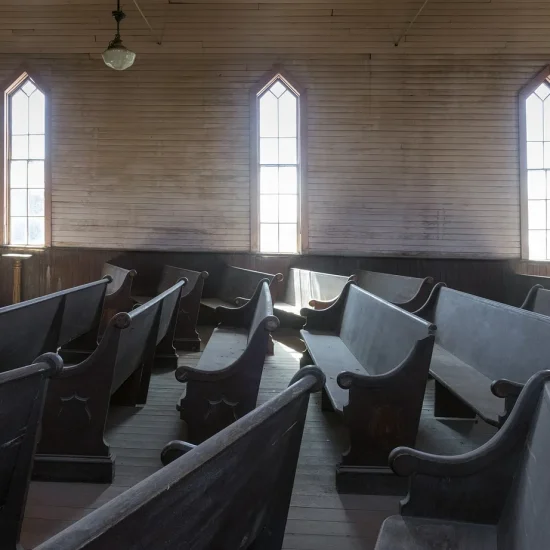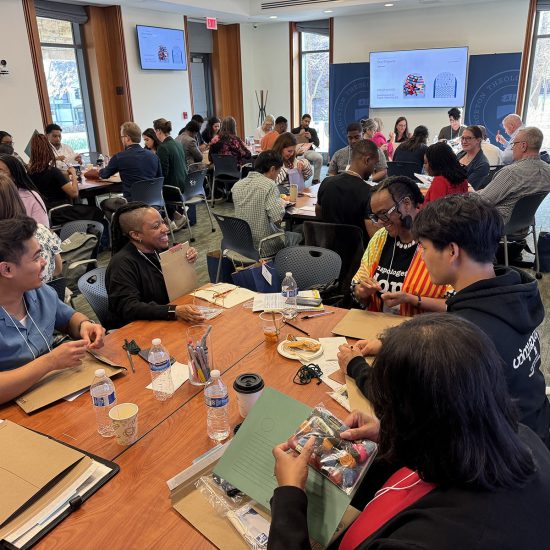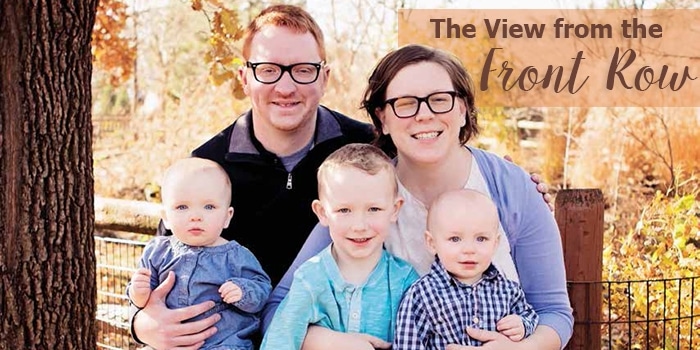
When Stephanie Swanson gave birth to twins last year, she and her husband, Charles Smith, were blessed with plenty of meals and plenty of sitters for the babies and their then five-year-old son. Stephanie, pastor of Crossroads Church in Kansas City, Mo., and Charles, associate pastor for students at Second Baptist Church in Liberty, Mo., had two communities looking after them, which was nice.
“Both churches stepped up in amazing ways and helped us,” Stephanie said.
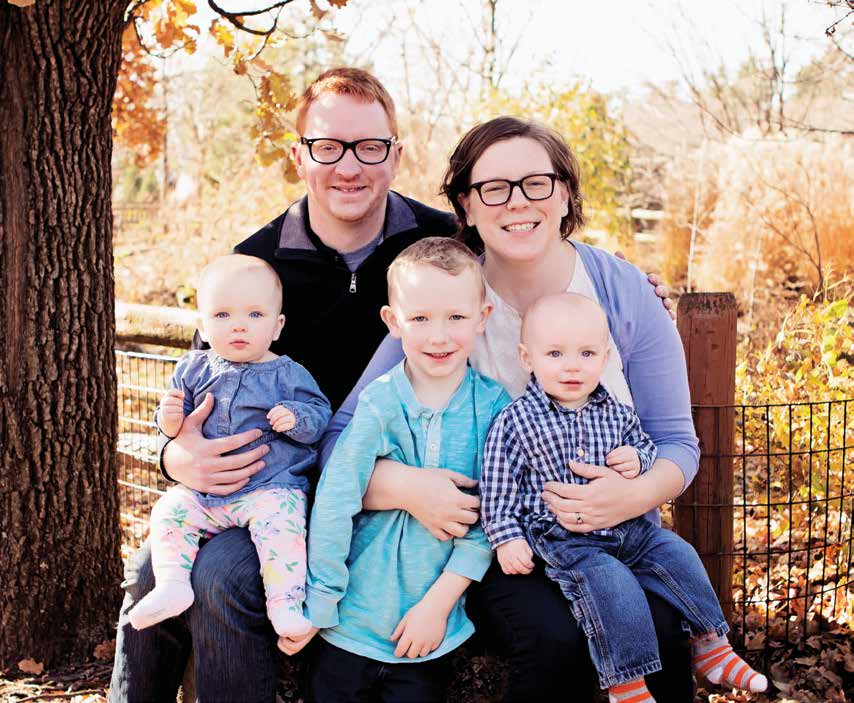 Stephanie Swanson and Charles Smith with their children, Eleanor, Finn and Asher“They coordinated meals online and filled the calendar,” Charles added.
Stephanie Swanson and Charles Smith with their children, Eleanor, Finn and Asher“They coordinated meals online and filled the calendar,” Charles added.
When it was time for the twins to be dedicated, the choice was easy — they had dedications at both churches because “both congregations feel like our family is part of their church,” Stephanie said. Still, going in different directions each Sunday is sometimes difficult. And that is just one of the challenges faced by families in which more than one person has followed the call into ministry.
A common myth about two-minister families is that marriage and parenting is easier, but that is not true, says Christy Edwards, a chaplain resident at St. Luke’s Hospital in Kansas City, Mo.
“Family is difficult for all people, including ministers and their kids,” she said.
She and her husband Jason Edwards, pastor at Second Baptist Church in Liberty, Mo., have served together in the mission field and on staff together at a previous church. Now, like many of their friends and fellow church members, they are a two-working-parents family with young children, with the same challenges that other working parents face. The big difference is that all eyes are on the pastor and the pastor’s family — and that is not always easy, Jason says.
“There are times in church life where it could easily seem like this is just family time,” Jason said. “When I need to be most attentive to the people in the congregation, my whole family is there. So, I’m constantly holding in balance being a good pastor, a good husband and good father, and all these dynamics are at play simultaneously.”
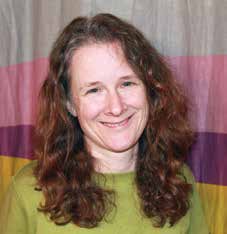 Joanna HaraderJoanna Harader, pastor of Peace Mennonite Church in Lawrence, Kan., and daughter of Cheryl Harader, associate pastor of spiritual formation at First Baptist Church, also in Lawrence, said growing up with parents who were in ministry helped her understand that being a pastor is hard “in ways that people who aren’t pastors don’t understand.”
Joanna HaraderJoanna Harader, pastor of Peace Mennonite Church in Lawrence, Kan., and daughter of Cheryl Harader, associate pastor of spiritual formation at First Baptist Church, also in Lawrence, said growing up with parents who were in ministry helped her understand that being a pastor is hard “in ways that people who aren’t pastors don’t understand.”
“I wasn’t disillusioned. I never had grandiose ideas of what it meant to be a pastor,” she said. “I knew what I was getting into.”
The spiritual encouragement that comes from sharing ministry is immeasurable in the life of a pastor, Christy said.
“One thing I like about both of us being ministers is that Jason and I really help each other by reading over each other’s stuff whether sermons, papers, devotions, whatever,” she said. “It’s fun to be able to connect in that way.”
“We are different people and have different gifts, and we see the world through different lenses,” Jason added. “Christy helps me notice things I need to pick on in pastoral care.”
Similarly, Stephanie said Charles is her go-to for youth ministry-related issues, while Charles goes to Stephanie for preaching and pastoral care concerns.
“It’s great to have that base of knowledge about how to handle these situations,” Charles said.
Having good support at home is also necessary in strong families, and that can be a challenge when both spouses are in ministry, Charles said.
“We have to be each other’s supporter and then trade that off sometimes,” he explained. “It can be difficult juggling which role you’re playing.”
Being at different churches has advantages, Stephanie said.
“When we were on staff together, there were things we could collaborate on, but the downfall of that was that our whole lives were wrapped up with relationships with church members,” she said. “Being at different churches we’re able to be a little more objective about things.”
And then there are the scheduling issues that working parents, particularly those who work odd hours often face.
“Being in ministry, we work a lot of nights, so we juggle who is picking up the kids and who is putting them to bed and those kinds of things,” Stephanie said. “It’s a scheduling nightmare, but we have all this great assistance from church members who have helped us raise our kids and still be in ministry.”
Most in ministry agree that having family members who share the vocation has been a tremendous help along the way.
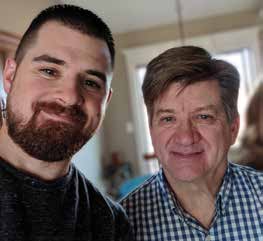 Regan Stoops (left) with his dad, RobinRegan Stoops, pastor of First Baptist Church in Gardner, Kan., said his dad, Robin, a long-time pastor and now executive minister of American Baptist Churches of Nebraska, is his go-to guy for ministry questions and always has been, from growing up to his first years in ministry when he sat in his office and wondered, “What do I do all day?”
Regan Stoops (left) with his dad, RobinRegan Stoops, pastor of First Baptist Church in Gardner, Kan., said his dad, Robin, a long-time pastor and now executive minister of American Baptist Churches of Nebraska, is his go-to guy for ministry questions and always has been, from growing up to his first years in ministry when he sat in his office and wondered, “What do I do all day?”
“He’s the one I trust when I don’t know what to do,” Regan said. “It put me ahead of the game when I started because I grew up watching him deal with people, deal with criticism and lead a church forward. It’s great to have someone with way more experience than me to go to for advice.”
Jonathan Clark, pastor of Willard Avenue Baptist Church in Kansas City, Kan., and the son and grandson of ministers, put it another way: “I had kind of a front row seat, if you will, with my dad. And both of my grandfathers were also pastors, so it was something I had kind of grown up around.”
For many kids, parental influence is a strong factor in choosing a profession. A 2017 New York Times analysis of data collected by the General Social Survey between 1994 and 2016 estimates that when compared to the rest of the population, a man is 2.7 times as likely to have the same job as his father and 2.0 times as likely to have the same job as his mother. Women are 1.7 as likely to have the same job as their fathers, and 1.8 times as likely to have the same job as their mothers.
Ministry differs from other professions in that it is a calling, but the family connection is there, too, Joanna believes.
“There’s a practicality to the business of tending a congregation and planning weekly worship,” she said. “Some of those very practical things that get taught and passed down are very helpful to being a pastor.”
Ruth Clark, mother of Jonathan and the daughter of a pastor, said her father was a tremendous influence on her when she felt God calling her to put her vocal talents to “more serious use.” Conversations with her dad helped her decide to go to seminary.
When Jonathan felt called to ministry himself, he felt nothing but support from his parents. Ask him who his pastor is, and he thinks of his dad. And if one of his children someday feels called into ministry?
“I would encourage him to follow the way God is leading, whatever that looks like,” Jonathan said.
Carrie Brown McWhorter writes for several publications, including The Alabama Baptist newspaper and Missions Mosaic magazine. Find her on Facebook @McWhorterMedia or visit her website, carriebrownmcwhorter.com.


